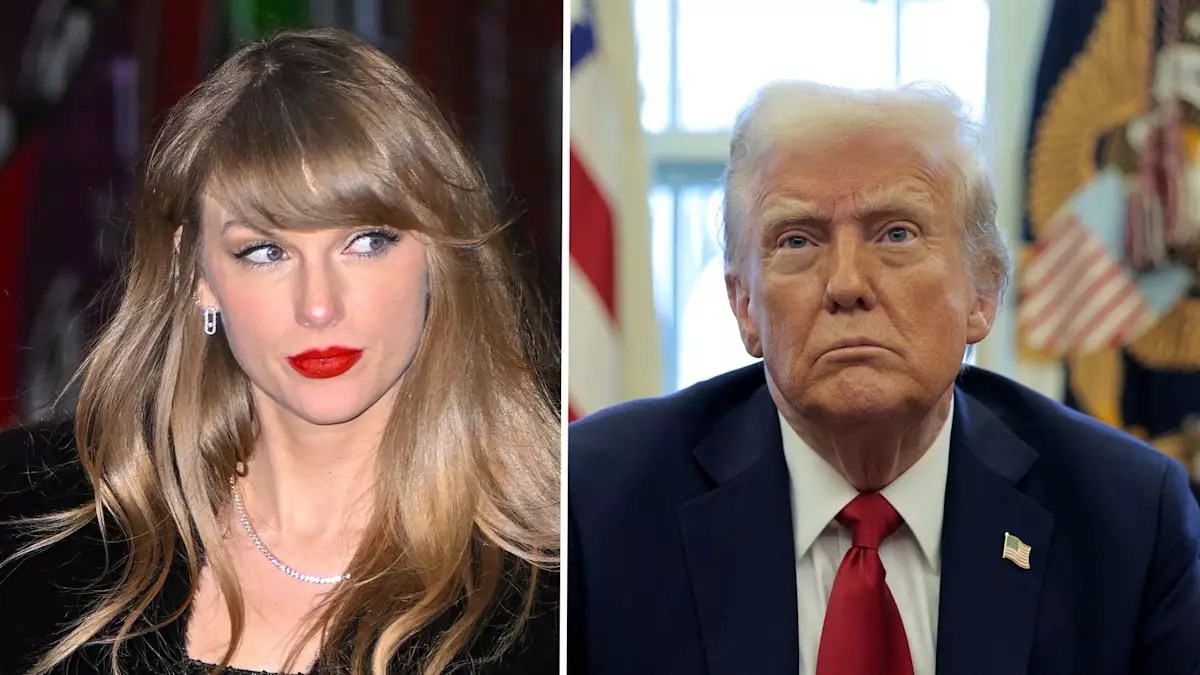In the bizarre fabric of American pop culture, the intersection of celebrity and politics has spun a web of both admiration and antagonism that has captivated public interest. Recent remarks from the former President of the United States, Donald Trump, added yet another layer to an ongoing spectacle involving two of music’s biggest names—Taylor Swift and Bruce Springsteen. Trump’s unexpected critique of Swift on his social media platform, Truth Social, transformed an ordinary moment into a headline-grabbing controversy.
Trump’s comments, particularly his jab stating, “Has anyone noticed that, since I said ‘I HATE TAYLOR SWIFT,’ she’s no longer ‘HOT?'” exhibit a cavalier disregard for how public statements can shape perception. The timing and venue of his remarks seem more like an attempt to divert attention from pressing issues than a mere commentary on the pop star’s looks. Swift’s presence, largely focused on her artistry and advocacy, has often drawn Trump’s ire, especially since she made her political stance clear during the past election cycle. Transgressing from mere celebrity gossip to socio-political commentary, Trump’s wording fuels an overarching narrative that reflects his need to dominate the media landscape.
The Broader Context: Celebrities and Political Activism
Bruce Springsteen entered the fray as well, expressing disdain for what he perceives as government incompetency. He described the current administration as “corrupt, incompetent, and treasonous,” making his statements while overseas. Trump’s response to Springsteen mirrored his earlier attack on Swift, underscoring a broader pattern. His description of the iconic rocker as a “dried out ‘prune'” speaks not only to personal derision but circles back to a media environment where insults reign. In both cases, both Swift and Springsteen stand as symbols—one representing the modern, outspoken artist and the other serving as a classic rock ‘n’ roll icon, yet both become targets for Trump in a battle of narrative control.
The former President leverages social media as a weapon of choice, employing derogatory language aimed at both artists to undermine their influence. This approach to political discourse reveals an unsettling reality where personal attacks overshadow critical discussion, resulting in a toxic blend of celebrity culture and political discourse. Ironically, even as he disparages them, he keeps them in an almost obsessive focus, showcasing his fixation on public perception—his own as much as theirs.
The Irony of Familial Affection
Interestingly, while Trump’s public persona engages in these attacks, his family appears to maintain a contradictory relationship with Swift’s music. Ivanka Trump and her daughter, Arabella, are avid fans, showcasing a cruel irony in the complexity of family dynamics mingled with public persona. Arabella celebrated her 13th birthday with a Taylor Swift-themed party, immortalizing the dichotomy between familial affection and the ex-President’s vitriol. Such contradictions highlight the multifaceted nature of celebrity relationships with political narratives, serving as a reminder that admiration and disdain can coexist within the same family tree.
The exceptionalism of Swift’s career, coupled with her willingness to stake a political position, galvanizes youth support and influences millions of fans. Trump insinuates that her support of Democratic candidates will have financial repercussions, but the reality is far more complex. Swift’s recent Eras Tour broke records and attracted a diverse, enthusiastic audience, suggesting that her influence extends far beyond partisan fallout—a fact that Trump undermines at his own peril.
The Paradox of Popularity and Influence
The persistent conflict between Trump and pop icons reflects a larger commentary on the cultural landscape where entertainment and political power intermingle. As political figures attempt to brandish authority through celebrity derision, they often ignore that these very celebrities possess platforms capable of mobilizing substantial followings, effectively reshaping public sentiment and dialogue. The tension generated serves as a reminder that public figures are not merely figures of entertainment but can wield substantial influence, inspiring social and political movements.
The current climate not only amplifies the complexity of celebrity influence in politics but showcases a troubling discourse trend, wherein the potency of harsh words gains precedence over meaningful dialogue. Both Swift and Springsteen stand as resilient artists unafraid to articulate their beliefs, even under the spotlight of criticism. As the narratives unfold, it becomes clear that the interplay between political figures and cultural icons remains intricate. Swift and Springsteen might be caught in a contentious tug-of-war with Trump, yet their unwavering commitment to uphold their beliefs adds a richness to their artistic legacies that transcends his disparaging remarks.







Leave a Reply